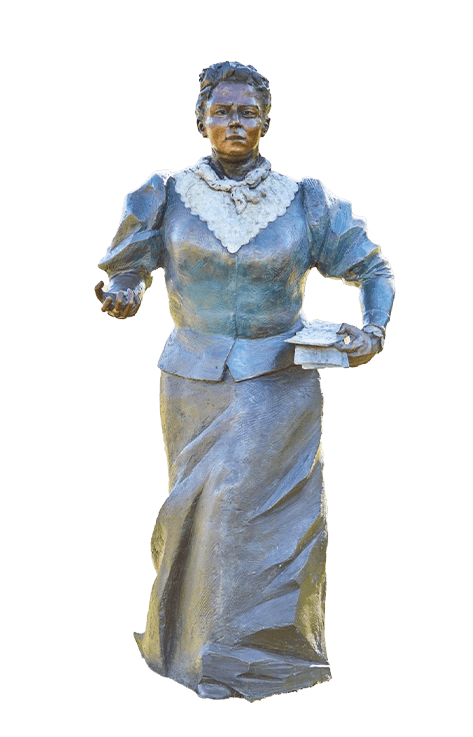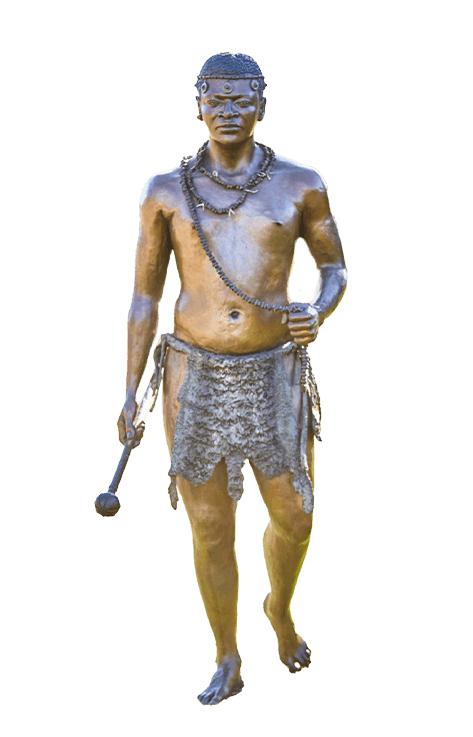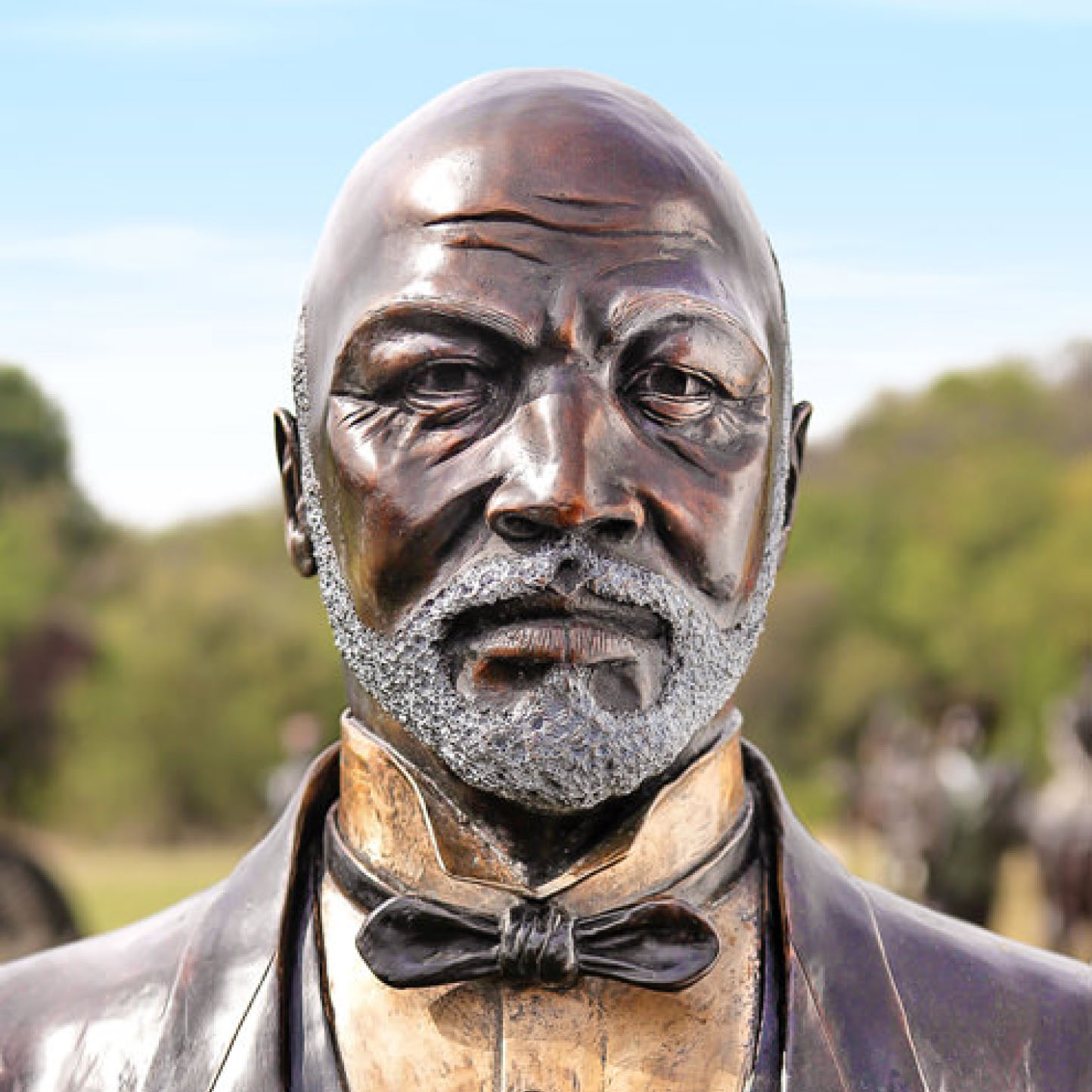
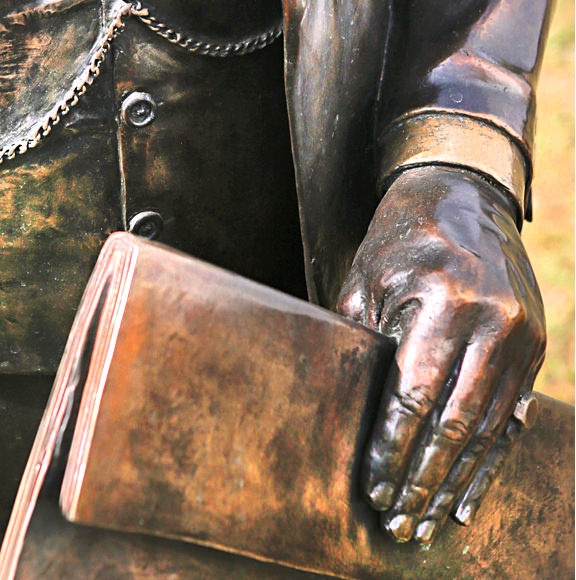
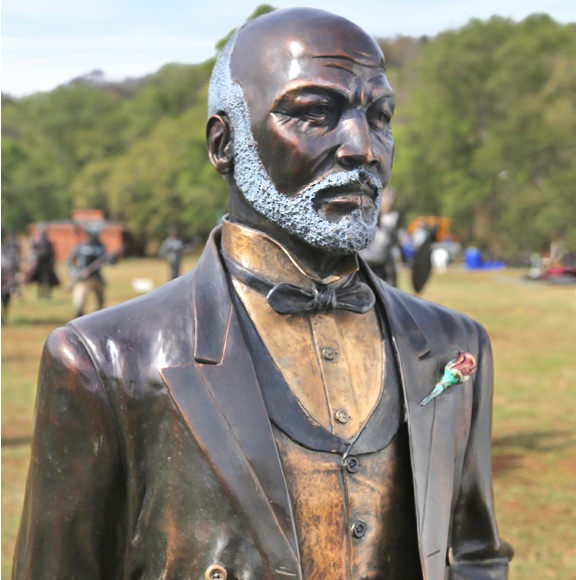
"We, the inarticulate Native Races of the Union, have been prohibited by the Colour Bar from direct representation in Parliament by members of our own race, but the day is surely and inevitably coming when we shall have the privilege of hearing the oratory of our own people on the floors of the Houses of Parliament. "
Saul Msane, address to SANNC members in Bethlehem, Abantu-Batho, 18 April 1918
Saul Msane
1856 – 1919
Member of the 1914 delegation to Britain opposing the 1913 Natives' Land Act, Secretary-General of the South African Native National Congress, Editor of Abantu-Batho
Saul Msane was born to Christian convert parents at the Edendale Mission station near Pietermaritzburg in KwaZulu-Natal.
His father was a chief and his mother the daughter of the Swazi Royal family. A teacher by training, he led a choir of Zulu singers on a concert tour of Europe in 1892, before taking up the position of compound manager at the Jubilee and Salisbury Gold Mining Company in Johannesburg. There he completed the Miners Companion in Zulu for white mine workers.
In 1901 he became a founder member of the Natal Native Congress, and when he moved to Johannesburg later, joined the Transvaal Native Congress. He was a founder member of the South African Native National Congress (SANNC) in 1912, and was elected to a deputation demanding that the Union government revoke the draft Natives' Land Bill during its first annual conference in 1913. The Minister of Native Affairs, Jacobus Sauer, gave the deputation a hearing, but was unmoved.
The SANNC then decided to put their case directly to the British king and its people and Msane was a member of the 1914 delegation that sailed from Cape Town to London to petition against the 1913 Natives Land Act.
During the long voyage, Msane challenged all comers to a game of chess. According to reports he beat everyone, making it difficult for some white passengers to accept that a black man could beat them. The deputation, however, failed to win support for the African cause.
By then Msane was a full-time SANNC organizer. In 1916 he became the editor of Abantu-Batho, the official mouthpiece of the SANNC from 1918 and of the ANC from 1928. His editorship was stormy and short-lived, when claims and counter-claims around the misuse of Congress finances saw him involved in unseating SANNC President John Dube and himself becoming its secretary-general in 1917. Selope Thema commented later that the quarrel between these parties had crippled the SANNC in its infancy.
Msane was heavily criticized when he questioned strikes by black mine workers, who saw this criticism as a betrayal of their cause and nicknamed him Isita saBantu ('Enemy of the People'). His political role was played out and he lived isolated from black workers in Bree Street, downtown Johannesburg.
In 1919 Msane was described as a speculator, though another biographer would say he worked as a labour recruiting agent, which secured him a substantial income.
Msane died unexpectedly in 1919 at Nkandla, KwaZulu-Natal, aged 63.
